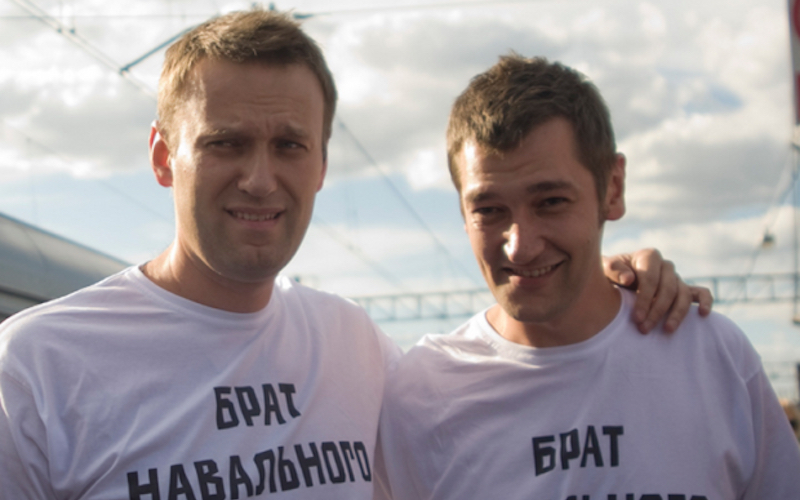
First Thoughts on the Navalny Sentencing
A three-and-a-half year suspended sentence for Alexei Navalny on questionable fraud charges and a similar sentence in a labour colony for his brother Oleg represents rather less than the prosecution demanded, more than justice would demand. But given that such political trials are wholly choreographed by the Kremlin, what does it say about what’s going on behind those closed doors at this tense and volatile time? My sense is that this reflects a perennial uncertainly in the government about quite what to do with Navalny and as a result is an inadequate and incoherent compromise between different camps or schools of thought, a reflection of division and lack of confidence rather than particular subtlety or a belief that Navalny no longer matters. Here are a few general observations.
1. The handling of the sentencing was clumsy and galvanised opposition. The sentencing was brought forward, presumably in the hope of taking the wind out of the sails of the protest scheduled for 15 January. However, not only does this make the government look jumpy and manipulative–and remember that protests feed off a sense that their side is “winning,” or at least that the other side is worried–it actually allows the anti-Kremlin forces to double-dip, with a flash protest now planned for tonight as well as the later one. At present more than 17,000 people have signed up to attend tonight’s, and although it is anyone’s guess how many will actually turn up, that is an impressively rapid mobilisation, and the Kremlin has no one to blame but itself.
2. The suspended sentence is a weak instrument against Navalny. After all, he is already on a suspended sentence, and while it makes it harder for longer for him to stand for office (and disqualifies him, unless both are reversed, from standing in the 2016 Duma elections), there is a clear law of diminishing returns at work. His first suspended sentence and house arrest have failed to muzzle him, so a second one just looks pointless. Indeed, judging by his own statements immediately after the sentencing (“Beasts! Is this how you are punishing me?”), I think he’s more angry than cowed, and this bodes ill for the Kremlin.
3. The government looks weak, and divided. No one sympathetic to Navalny will give the Kremlin any credit for “mercy” in this questionable trial and sentencing. Likewise, no one who regards Navalny as a crook or a hypocrite, or who feels a firm hand is needed, will be satisfied with a mere suspended sentence. As a result, the Kremlin gets the classic worst of both worlds of a compromise decision, satisfying neither side. After all, the prosecution had called for ten years in prison, and the Investigations Committee (which has just been brought back under the oversight of the General Prosecutor, which is a Big Deal, even if largely unremarked upon, and I’ll be returning to it anon) likewise had set its sights on a custodial sentence this time. But if the hawks are unsatisfied, no one on the more business- and law-oriented side of the regime appears to be deriving much pleasure from the outcome.
4. Hostage taking is back. Oleg’s greatest crime is, of course, that he is Navalny’s brother. Even the prosecution had actually sought a lesser punishment for him (8 to Alexei’s 10), so his more serious sentence is hard to interpret as anything but an attempt to use him as a hostage. This is unlikely to work on previous experience, but it will also be a worrying signal to the Russian elite. Up to now, after all, while it has been no secret that the “law” is used as an instrument of political control and business rivalry, “noncombatants” have generally been considered exempt. Whether or not the Kremlin wanted to signal more generally that this is no longer the case, there will inevitably be wider concerns. I wonder how many oligarchs, minigarchs and the like will be revisiting plans to relocate family members abroad, a kind of “human flight” to mirror the rampant capital flight visible as they try to get their assets out of the Kremlin’s and their rivals’ reach…
The rouble rate, a useful if very imperfect gauge of business confidence, took another plunge, vindicating concerns expressed by experts that the sentencing would be unhelpful, something Vadim Volkov of the European University in St Petersburg has usefully explored in Vedomosti. Meanwhile, we’ll have to see what happens tonight and on 15 January. I’ve just come back from Moscow, where people were expressing concerns about the latter, fearing that the government would stage provocations as an excuse for a crackdown. It is possible that the Kremlin will now overcompensate and turn to such maximalist measures, but if so, this is likely yet further to galvanise resistance. I don’t suggest for a minute that this is some kind of pivotal “Blood Sunday” moment in the making or anything else so momentous, but I think it is a further sign of a government that is divided, out of ideas, and in the process prone to making bad political calculations. Ultimately, let’s not forget, authoritarian regimes fall not primarily because of pressure from the streets, but division, paralysis and demoralisation from within.
This article was originally posted in In Moscow’s Shadows.

